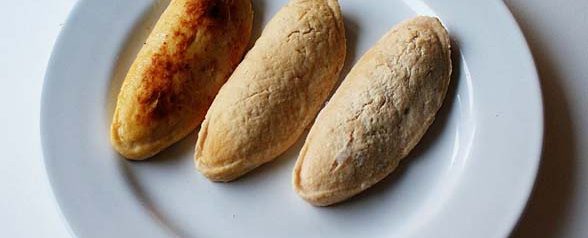
Dear John,
What do you think of the new meat substitute made from mushrooms, called Quorn? Do you eat it?
Judy
Judy,
Thanks for your Quorn query.
Quorn is the brand name for a “mycoprotein” products sold as meat substitutes. Quorn products take the form of faux chicken patties, nuggets, cutlets, and imitation ground beef. It is designed to appeal to vegetarians who are looking for protein sources that aren’t meat.
The manufacturer of Quorn is Marlow Foods, a division of the multinational pharmaceutical giant Astra Zeneca, one of the dominant corporations in genetically engineered food. They are telling the public that the food is made from mushrooms. The packaging says the “mycoprotein” in Quorn is “made from natural ingredients” that are “mushroom in origin,” and “made from a small, unassuming member of the mushroom family.” This evokes images of tiny mushrooms growing humbly and peacefully in the Earth.
Actually, though, this is far from the case. Quorn, in fact, is a highly processed food made in giant laboratory vats from a fungus (Fusarium venenatum) which is a mold, not a mushroom. An expert on Fusarium fungus, David M. Geiser of the Pennsylvania State University Fusarium Research Center, told the FDA that calling the Fusarium fungus that is the basis of Quorn foods a mushroom is like “calling a rat a chicken because both are animals.”
A mycologist from Cornell University said that mushrooms are as distantly related to Quorn’s fungus as humans are to jellyfish.
The Center for Science in the Public Interest (CSPI) is strongly opposed to Quorn, and has asked the FDA to halt the marketing of Quorn products and to require all Quorn foods to be recalled from market shelves. According to CSPI, quite a number of people have gotten sick after eating the product, typically vomiting several hours after eating the product.
This comes as no surprise to Dr. David A. Morowitz, Clinical Professor of Medicine (gastroenterology) at Georgetown University. “ The data argue compellingly,” he says, “that the mycoprotein derived from Fusarium venenatum is almost certainly gastrotoxic. The risk of its toxicity does not justify its continued use here in the United States.”
“On theoretical grounds alone,” adds Dr. John Santilli, a Bridgeport, Connecticut allergist, “the use of this mold in food is highly dubious. Intentionally increasing consumer exposure to mold through the food supply will only increase the risk of discomfort and adverse reactions in mold-sensitive consumers.”
I’ve never eaten Quorn, and I have no intention of ever trying it. Personally I like to stay with traditional foods that have stood the test of the centuries. Quorn looks to me like another highly processed and deceitfully labeled product that may end up causing health problems, and which shouldn’t be in the food supply in the first place.
This blessed Earth has given us many wonderful foods. I believe our trust is best placed in foods the way Nature intends, not in products concocted in laboratories by multinational corporations trying to exploit the vegetarian market.
In gratitude for Nature’s gifts,
John
Note: Image from Jan Ainali under a Creative Commons license

